Blog
Masjid
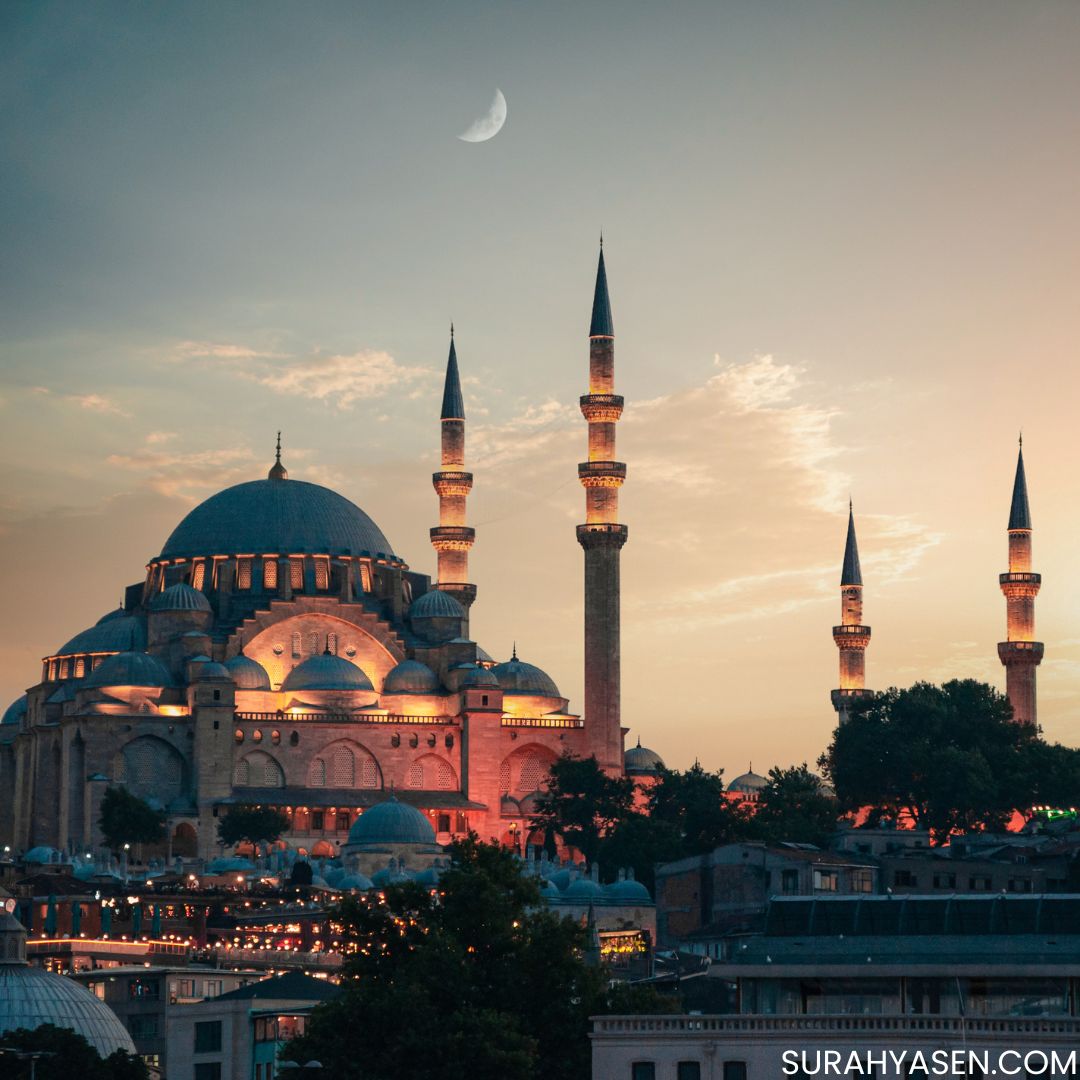
A Masjid commonly known in English as a mosque is a place of worship for Muslims. Derived from the Arabic root word sajada (سَجَدَ), which means “to prostrate,” the term Masjid directly translates to “a place of prostration.” It holds spiritual, communal, and cultural significance in Islam.
Historical Background of Masjids
The first Masjid in Islamic history is the Masjid Quba in Medina, built by the Prophet Muhammad ﷺ upon his arrival during the Hijrah (migration from Makkah). Another notable early mosque is Masjid al-Nabawi, also in Medina, which became the blueprint for mosques around the world.
Key Historical Masjids:
- Masjid al-Haram (Mecca): The holiest site in Islam, home to the Kaaba.
- Masjid al-Aqsa (Jerusalem): The first Qiblah (direction of prayer) and third holiest site in Islam.
- Masjid Qiblatain (Medina): Known for the change of Qiblah during prayer from Jerusalem to Makkah.
Architectural Features of a Masjid
Masjid architecture varies by region but usually includes:
- Mihrab: A niche in the wall indicating the Qiblah (direction of prayer).
- Minaret: A tower from which the call to prayer (Adhan) is announced.
- Dome: Often found atop mosques, symbolizing the heavens.
- Prayer Hall: An open space for congregational prayers.
- Ablution Area: Space for performing Wudu (ritual washing before prayer).
Functions of a Masjid in Muslim Society
While primarily used for Salah (prayer), the Masjid serves multiple roles:
- Spiritual Center: Hosting five daily prayers, Friday sermons (Jumu’ah), Ramadan Taraweeh, and Eid prayers.
- Educational Hub: Offering Quran classes, Islamic studies, and lectures.
- Social Support: Providing community assistance, marriage services, and charity (Zakat distribution).
- Cultural Space: Celebrating Islamic events and festivals.
Etiquettes of Visiting a Masjid
When visiting a Masjid, Muslims follow proper etiquettes:
- Dress modestly.
- Perform Wudu before entering.
- Remove shoes before entering the prayer area.
- Maintain silence and respect during prayers.
- Avoid crossing in front of someone praying.
Importance of Masjids in Islam
The Prophet Muhammad ﷺ said:
“Whoever builds a Masjid for Allah, Allah will build for him a house like it in Paradise.” (Sahih al-Bukhari and Muslim)
This Hadith underlines the spiritual reward and importance of contributing to the building and maintenance of Masjids.
Modern-Day Masjids Around the World
From the grandeur of Sheikh Zayed Grand Mosque in the UAE to the historic Blue Mosque in Turkey, Masjids today reflect the beauty and diversity of Islamic architecture and culture.
Famous Masjids Globally:
- Sultan Ahmed Mosque (Blue Mosque) – Istanbul, Turkey
- Faisal Masjid
- Hassan II Mosque – Casablanca, Morocco
- Putra Mosque – Putrajaya, Malaysia
Masjids and Technology
Today, many Masjids have embraced digital transformation with:
- Live streaming of Jumu’ah and Taraweeh prayers
- Mobile apps for prayer times and announcements
- Online fundraising and donations
- Virtual Islamic classes and sermons
Building a Masjid: A Sadaqah Jariyah
One of the most rewarding charitable acts in Islam is contributing to the construction or upkeep of a Masjid. This Sadaqah Jariyah (continuous charity) benefits both the giver and the community for generations.
Final Thoughts
The Masjid is far more than just a building—it is the beating heart of Islamic life, offering spiritual guidance, communal support, and a place of peace for millions around the globe. As Islam continues to thrive in every corner of the world, Masjids stand tall as symbols of unity, worship, and divine connection.
Blog
How to Pray Namaz Step by Step
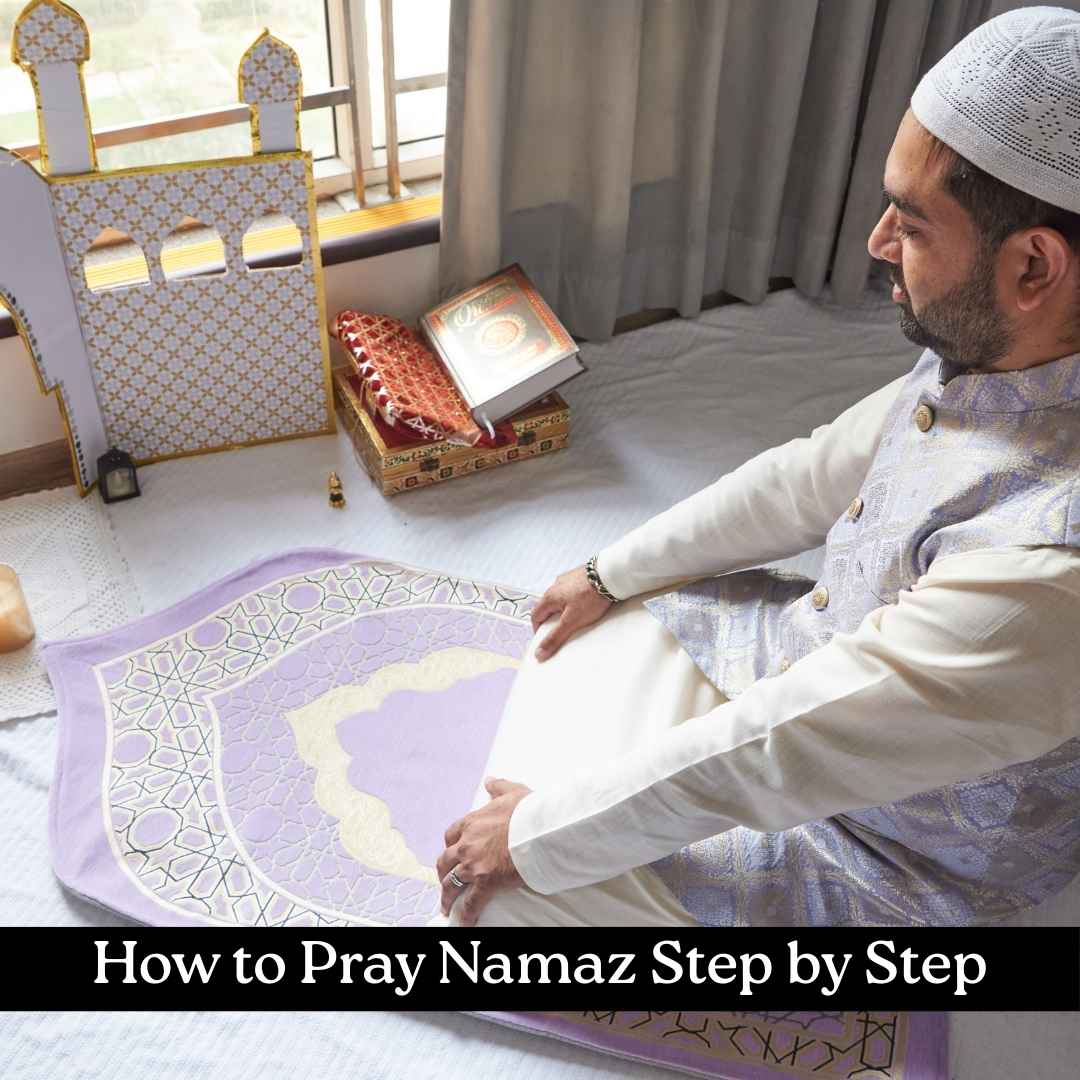
Namaz (Salah) is the second pillar of Islam and a fundamental act of worship for Muslims. Allah commands:
“Establish prayer and give zakah and bow with those who bow [in worship and obedience].”
(Surah Al-Baqarah 2:43)
Namaz is a direct connection between a believer and Allah, offering spiritual, physical, and psychological benefits. Learning how to pray Namaz step by step ensures accuracy, focus, and devotion, especially for beginners or new Muslims.
This article provides a detailed, step-by-step guide on performing Namaz correctly, including preparation, prayer steps, common mistakes, and tips to improve concentration.
1. Understanding the Concept of Namaz
Namaz is more than a ritual; it is an act of obedience, gratitude, and submission to Allah:
- Physical and spiritual discipline
- Reminder of Allah’s presence in daily life
- Purification of the soul through humility and focus
Prophet Muhammad ﷺ said:
“The first matter that the servant will be brought to account for on the Day of Judgment is the prayer. If it is sound, the rest of his deeds will be sound. If it is defective, the rest of his deeds will be defective.”
(Sunan At-Tirmidhi 413)
Namaz is required five times a day: Fajr, Dhuhr, Asr, Maghrib, and Isha.
2. Preparations Before Namaz
a) Purity: Wudu (Ablution)
Before praying, one must be in a state of physical purity:
- Wash hands, mouth, face, arms, head, ears, and feet
- Perform Wudu correctly as taught in Sunnah
- Ensure clothing and body are clean
Allah says:
“O you who have believed, when you rise to [perform] prayer, wash your faces and your hands up to the elbows and wipe over your heads and [wash] your feet up to the ankles.”
(Surah Al-Ma’idah 5:6)
b) Clean Place for Prayer
- Use a clean area or prayer mat
- Remove distractions and ensure focus (khushu)
c) Correct Clothing
- Clothes must cover Awrah (modesty)
- For men: from navel to knees at minimum; for women: whole body except face and hands
3. Steps to Pray Namaz Step by Step
Step 1: Niyyah (Intention)
- Form the intention in the heart for a specific prayer (Fajr, Dhuhr, etc.)
- No need to say it aloud
- Focus on pleasing Allah through prayer
Prophet ﷺ said:
“Actions are judged by intentions, and every person will have what he intended.”
(Sahih Bukhari 1, Sahih Muslim 1907)
Step 2: Takbir al-Ihram
- Stand facing the Qiblah (direction of Kaaba in Makkah)
- Raise hands up to shoulders and say:
“Allahu Akbar” (Allah is the Greatest)
- This marks the beginning of Salah
Step 3: Standing (Qiyam) and Recitation
- Place hands over chest (right hand over left)
- Recite silently (for daily prayers):
- Surah Al-Fatiha (The Opening): Mandatory in each Rak’ah
- A short Surah or 2–3 verses from Quran
- Maintain calm, focus, and humility
Allah says:
“Recite, [O Muhammad], what has been revealed to you of the Book and establish prayer. Indeed, prayer prohibits immorality and wrongdoing.”
(Surah Al-Ankabut 29:45)
Step 4: Ruku (Bowing)
- Bend forward, placing hands on knees, back straight
- Say three times:
“Subhana Rabbiyal Azeem” (Glory be to my Lord, the Most Great)
- Focus on humility and submission
Step 5: Standing After Ruku (I’tidal)
- Stand up straight, saying:
“Sami’ Allahu liman hamidah” (Allah hears those who praise Him)
- Then say:
“Rabbana wa lakal hamd” (Our Lord, to You is all praise)
Step 6: Sujood (Prostration)
- Place forehead, nose, palms, knees, and toes on the ground
- Say at least three times:
“Subhana Rabbiyal A’la” (Glory be to my Lord, the Most High)
- Maintain humility and focus on Allah
Step 7: Sitting Between Two Sujoods
- Sit calmly on legs, hands on thighs
- Say:
“Rabbighfir li” (My Lord, forgive me)
- This is called Jalsa
Step 8: Second Sujood
- Repeat Sujood, same as Step 6
- Ensure focus and humility
Step 9: Completing One Rak’ah
- One Rak’ah consists of: Qiyam → Ruku → I’tidal → Sujood → Jalsa → Sujood
- Repeat for the number of Rak’ahs in each prayer:
- Fajr: 2
- Dhuhr: 4
- Asr: 4
- Maghrib: 3
- Isha: 4
Step 10: Tashahhud (Sitting After Last Rak’ah)
- After last Rak’ah, sit and recite:
“At-tahiyyatu lillahi was-salawatu wat-tayyibat…”
- Followed by sending Salawat on the Prophet ﷺ:
“Allahumma salli ‘ala Muhammad wa ‘ala aali Muhammad…”
Step 11: Tasleem (Ending the Prayer)
- Turn head to right: “Assalamu Alaikum wa Rahmatullah”
- Turn head to left: “Assalamu Alaikum wa Rahmatullah”
- This marks the end of Salah
4. Tips for Performing Namaz Correctly
- Maintain focus (khushu): Avoid distractions
- Recite slowly and clearly
- Understand meanings of Surah Al-Fatiha and other Surahs
- Perform regular Wudu for spiritual and physical purity
- Pray on time to increase reward
- Use prayer mat or clean surface to create a spiritual environment
5. Common Mistakes and How to Correct Them
| Mistake | Solution |
|---|---|
| Rushing Salah | Slow down, focus on words and movements |
| Incorrect Tajweed | Learn proper recitation online or with teacher |
| Forgetting Surahs | Memorize gradually, review daily |
| Poor posture | Watch tutorials or learn from teacher |
| Distraction during prayer | Pray in quiet, clean place, minimize noise |
6. Learning Namaz Step by Step for Children
- Start with short Surahs
- Use songs, visual guides, and repetition
- Practice Takbir, Ruku, Sujood physically before reciting
- Praise and encourage progress
Prophet ﷺ said:
“Teach your children Salah when they are seven years old, and beat them for it at ten if they do not pray.”
(Abu Dawood 495)
7. Learning Namaz for New Muslims
- Start with 2 Rak’ah Fajr and Maghrib prayers
- Gradually add remaining prayers
- Focus on understanding each movement and recitation
- Use online tutorials, apps, and teacher guidance
8. Spiritual Benefits of Namaz
- Strengthens connection with Allah
- Purifies heart and mind
- Offers protection from sin
- Brings peace, discipline, and gratitude
Allah says:
“Indeed, prayer prohibits immorality and wrongdoing, and the remembrance of Allah is greater.”
(Surah Al-Ankabut 29:45)
9. Physical and Psychological Benefits of Namaz
- Improves posture, flexibility, and circulation
- Reduces stress and anxiety
- Promotes mindfulness and discipline
- Builds routine and consistency
10. Namaz in Congregation
- Performing Namaz in congregation (jama’ah) has 27 times more reward than praying alone
- Encourages community bonding and accountability
Prophet ﷺ said:
“Prayer in congregation is twenty-seven times more rewarding than prayer offered by oneself.”
(Sahih Bukhari 645, Sahih Muslim 650)
11. Step-by-Step Checklist for Daily Namaz
- Perform Wudu
- Wear clean clothes and prepare prayer space
- Make Niyyah (intention)
- Say Takbir al-Ihram
- Recite Surah Al-Fatiha and other Surah
- Perform Ruku and say Tasbih
- Stand up (I’tidal) and say Tasbih
- Perform Sujood, sit, and repeat
- Complete required Rak’ahs
- Recite Tashahhud and Salawat in last Rak’ah
- End with Tasleem
12. Tips to Improve Concentration in Salah
- Learn meanings of words you recite
- Pray in quiet, clean, distraction-free space
- Visualize standing before Allah
- Avoid unnecessary movement
- Regular repetition builds habit and focus
13. Namaz Resources for Beginners
- Quran and Hadith guides for Salah
- Online tutorials (video and audio)
- Mobile apps with step-by-step Salah instructions
- Children-friendly interactive tools for learning movements
14. Common FAQs About Namaz
Q1: How many Rak’ahs in each prayer?
- Fajr: 2
- Dhuhr: 4
- Asr: 4
- Maghrib: 3
- Isha: 4
Q2: Can a person pray without Wudu?
- No, Wudu is mandatory unless in state of Tayammum
Q3: What if I forget a movement?
- Repeat Rak’ah if necessary or continue with the prayer
Q4: How can I pray on time consistently?
- Set reminders or alarms, create routine
Conclusion: The Beauty of Salah
Praying Namaz is the most important act of worship in Islam. Learning how to pray Namaz step by step ensures correct performance, focus, and spiritual benefits. Whether you are a child, adult, or new Muslim, following this guide helps:
- Perform Namaz with proper Tajweed and movements
- Gain spiritual rewards and closeness to Allah
- Maintain discipline, mindfulness, and ethical conduct
Start learning today and make Namaz a consistent, fulfilling part of your life. For detailed step-by-step guides, video tutorials, and online lessons, visit 👉 surahyaseen.net for authentic Islamic guidance.
Blog
Angels in Islam Explained
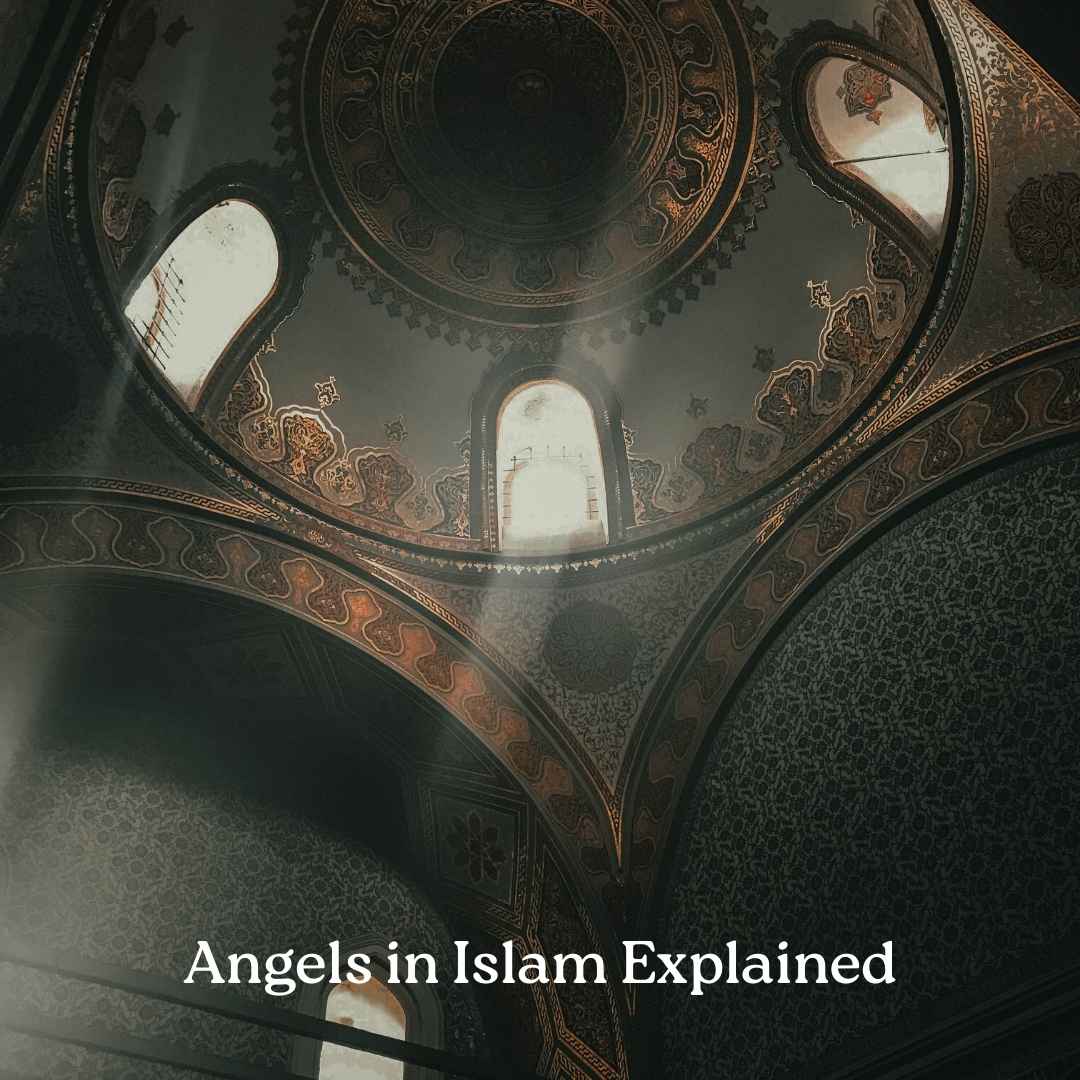
Belief in angels is a core pillar of Islamic faith (Iman). In Islam, angels are real, unseen beings created by Allah who carry out His commands with absolute obedience. They are neither divine nor symbolic; rather, they are a distinct creation mentioned repeatedly in the Qur’an and explained through authentic Islamic teachings.
Allah says:
“The Messenger has believed in what was revealed to him from his Lord, and so have the believers. All of them have believed in Allah, His angels, His books, and His messengers.”
(Qur’an 2:285)
Without belief in angels, a person’s faith is incomplete. Understanding angels helps Muslims comprehend how Allah governs the universe, records human deeds, delivers revelation, and executes divine justice.
What Are Angels in Islam?
In Islam, angels (Arabic: Mala’ikah) are created beings of Allah made from light. They exist in the unseen world (Al-Ghayb) and perform specific duties assigned by Allah.
Allah describes angels as beings who:
“Do not disobey Allah in what He commands them but do what they are commanded.”
(Qur’an 66:6)
Key Characteristics of Angels
According to Islamic belief:
- Angels are created by Allah, not divine
- They are sinless and never disobey Allah
- They do not eat, drink, marry, or reproduce
- They are invisible to humans unless Allah allows
- Each angel has a specific role
- They constantly worship Allah
Why Belief in Angels Is Essential in Islam
Belief in angels connects a Muslim to the unseen system of divine accountability. Angels:
- Record every human action
- Deliver Allah’s revelations
- Protect believers by Allah’s command
- Carry out punishment and mercy
- Welcome souls at death
Allah says:
“Indeed, over you are guardians, noble and recording; they know whatever you do.”
(Qur’an 82:10–12)
This awareness builds taqwa (God-consciousness) and moral responsibility.
Creation of Angels According to Islam
The Qur’an does not specify the exact moment of angelic creation but confirms they were created before humans.
Allah says:
“And when your Lord said to the angels, ‘Indeed, I will place upon the earth a vicegerent.’”
(Qur’an 2:30)
This verse confirms angels existed before Adam عليه السلام and were present during humanity’s creation.
Major Angels in Islam and Their Roles
Islam teaches that some angels have major universal responsibilities, while others serve specific functions.
Angel Jibreel (Gabriel) – The Angel of Revelation
Jibreel عليه السلام is the most honored angel in Islam. His primary duty is delivering revelation from Allah to His messengers.
Allah says:
“Say, whoever is an enemy to Jibreel – it is he who has brought the Qur’an down upon your heart by permission of Allah.”
(Qur’an 2:97)
Roles of Jibreel:
- Delivered the Qur’an to Prophet Muhammad ﷺ
- Communicated Allah’s commands to prophets
- Supported prophets during critical moments
Angel Mika’il (Michael) – Provider of Sustenance
Mika’il عليه السلام oversees natural processes such as rain, crops, and sustenance by Allah’s command.
“Whoever is an enemy to Allah and His angels and His messengers and Jibreel and Mika’il – then indeed, Allah is an enemy to the disbelievers.”
(Qur’an 2:98)
Angel Israfeel – The Blower of the Trumpet
Israfeel عليه السلام will blow the trumpet signaling the Day of Judgment.
“And the Trumpet will be blown, and whoever is in the heavens and whoever is on the earth will fall dead, except whom Allah wills.”
(Qur’an 39:68)
Angel Malak-ul-Maut – The Angel of Death
The Angel of Death is responsible for taking souls at their appointed time.
“Say, the Angel of Death who has been entrusted with you will take your soul.”
(Qur’an 32:11)
Recording Angels: Kiraman Katibin
Every human has two angels assigned to them:
- One records good deeds
- One records bad deeds
Allah says:
“When the two receivers receive, seated on the right and on the left.”
(Qur’an 50:17)
These records will be presented on the Day of Judgment.
Angels of Protection (Hafaza)
Some angels protect humans by Allah’s command.
“For him are successive angels before and behind him who protect him by the decree of Allah.”
(Qur’an 13:11)
Protection remains only as long as Allah wills.
Angels of the Grave: Munkar and Nakir
After death, angels question the soul in the grave about:
- Who is your Lord?
- What is your religion?
- Who is your Prophet?
This stage is part of the unseen accountability system.
Angels and Worship of Allah
Angels are in constant worship of Allah.
“They glorify Him night and day and never slacken.”
(Qur’an 21:20)
Some angels bow, some prostrate, others glorify Allah endlessly.
Angels and the Day of Judgment
On the Day of Resurrection, angels will:
- Stand in rows
- Bring forth Hellfire
- Welcome believers into Paradise
Allah says:
“And the angels will be on its sides, and eight will carry the Throne of your Lord that Day.”
(Qur’an 69:17)
Difference Between Angels, Jinn, and Humans
| Creation | Free Will | Created From | Accountability |
|---|---|---|---|
| Angels | No | Light | Obedience only |
| Jinn | Yes | Fire | Accountable |
| Humans | Yes | Earth | Accountable |
Can Humans See Angels?
Humans cannot normally see angels. However, Allah may allow angels to appear in human form.
“Then We sent to her Our angel, and he appeared before her as a well-proportioned man.”
(Qur’an 19:17)
Wisdom Behind Angels in Islam
Angels demonstrate:
- Allah’s perfect system
- Divine justice
- Mercy and punishment
- Accountability beyond human sight
They remind believers that nothing goes unnoticed.
Common Misconceptions About Angels
- Angels are not female
- Angels are not symbolic
- Angels do not share Allah’s power
- Angels are not worshipped
Allah says:
“They are but honored servants.”
(Qur’an 21:26)
Conclusion: Angels as Part of Islamic Faith
Belief in angels deepens faith, awareness, and humility before Allah. They operate silently yet powerfully within Allah’s divine order.
Blog
Who Is Prophet Muhammad ﷺ?
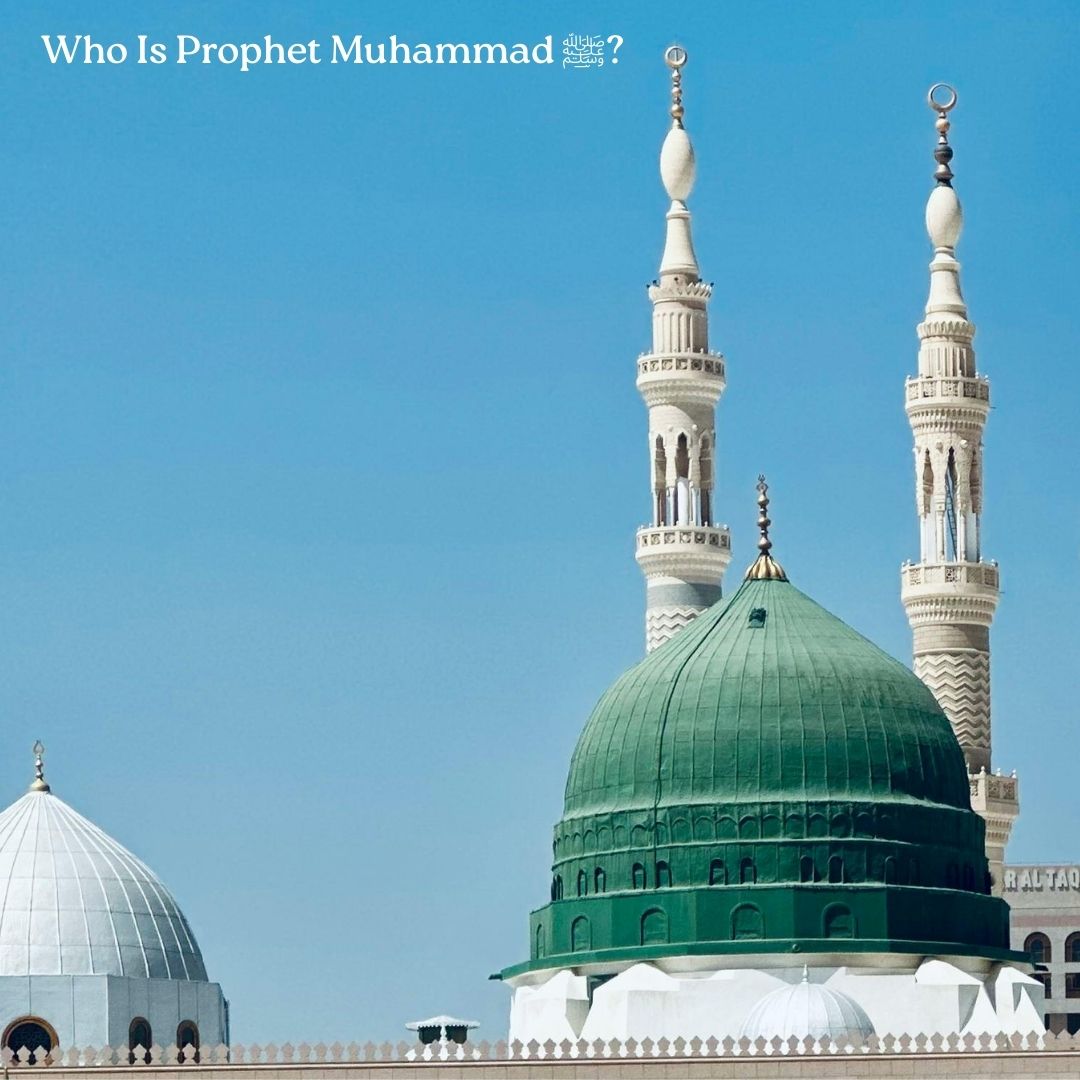
The question “Who is Prophet Muhammad ﷺ?” is one of the most searched and most misunderstood questions about Islam. For Muslims, Prophet Muhammad ﷺ is the final Messenger of Allah, sent as a mercy to all humanity. For those seeking to understand Islam, knowing who Muhammad ﷺ was—and what role he played—is essential to understanding the faith itself.
Islam teaches that Prophet Muhammad ﷺ was not divine, not an object of worship, and not the founder of a new religion. Rather, he was a human being chosen by Allah to deliver the final and complete message of guidance: the Holy Qur’an.
Allah states clearly:
“Muhammad is not the father of any of your men, but he is the Messenger of Allah and the Seal of the Prophets.”
(Surah Al-Ahzab 33:40)
Understanding Prophet Muhammad ﷺ correctly removes misconceptions and reveals the true nature of Islam as a continuation of divine guidance.
Who Was Prophet Muhammad ﷺ According to Islam?
Prophet Muhammad ﷺ was a messenger chosen by Allah to convey His revelation to humanity. Islam emphasizes that all prophets were human beings who conveyed the same core message: worship Allah alone and live righteously.
Allah says:
“Say: I am only a human being like you, to whom it has been revealed that your God is One God.”
(Surah Al-Kahf 18:110)
Prophet Muhammad ﷺ did not speak on his own authority when delivering revelation. His role was to convey, explain, and live the Qur’an.
The Meaning of the Name Muhammad ﷺ
The name Muhammad comes from the Arabic root ḥ-m-d, meaning to praise. Muhammad means “the one who is praised repeatedly.” This meaning aligns with Allah’s mention of him in the Qur’an as one whose character and mission are worthy of recognition.
Allah says:
“And We have raised for you your mention.”
(Surah Ash-Sharh 94:4)
This verse signifies that Allah Himself elevated the remembrance of Prophet Muhammad ﷺ across generations.
Prophet Muhammad ﷺ Was Chosen by Allah
Prophethood is not achieved through effort, lineage, or ambition. It is a divine selection.
Allah states:
“Allah chooses messengers from angels and from mankind.”
(Surah Al-Hajj 22:75)
Prophet Muhammad ﷺ was chosen to deliver the final revelation at a time when humanity needed a universal, preserved message.
Prophet Muhammad ﷺ and the Final Revelation
The defining mission of Prophet Muhammad ﷺ was to receive and convey the Qur’an, the final word of Allah.
“This Qur’an has been revealed to me that I may warn you and whomsoever it reaches.”
(Surah Al-An’am 6:19)
The Qur’an is not the words of Muhammad ﷺ; it is the direct speech of Allah, revealed to him for humanity.
“Nor does he speak from his own desire. It is only a revelation revealed.”
(Surah An-Najm 53:3–4)
Prophet Muhammad ﷺ as a Mercy to Humanity
One of the most powerful descriptions of Prophet Muhammad ﷺ in the Qur’an is that he was sent as mercy for all creation, not only Muslims.
Allah declares:
“And We have not sent you except as a mercy to the worlds.”
(Surah Al-Anbiya 21:107)
This mercy included guidance, justice, compassion, moral reform, and spiritual clarity.
The Character of Prophet Muhammad ﷺ in the Qur’an
The Qur’an praises the character of Prophet Muhammad ﷺ explicitly.
“And indeed, you are upon an عظیم (great) moral character.”
(Surah Al-Qalam 68:4)
His life demonstrated honesty, patience, humility, forgiveness, and trust in Allah. His character served as a living example of Qur’anic values.
Prophet Muhammad ﷺ Was a Warner and a Bearer of Glad Tidings
Allah describes the mission of Prophet Muhammad ﷺ as balanced—warning against wrongdoing and giving hope through guidance.
“O Prophet, indeed We have sent you as a witness and a bringer of good tidings and a warner.”
(Surah Al-Ahzab 33:45)
This balance is central to Islam: accountability alongside mercy.
Prophet Muhammad ﷺ Did Not Claim Divinity
Islam categorically rejects the idea that Prophet Muhammad ﷺ possessed divine qualities.
Allah commanded him to say:
“I do not tell you that I possess the treasures of Allah, nor that I know the unseen.”
(Surah Al-An’am 6:50)
He was a servant and messenger—nothing more, nothing less.
Prophet Muhammad ﷺ and Monotheism (Tawheed)
The central mission of Prophet Muhammad ﷺ was to restore pure monotheism.
“Say: O mankind, I am the Messenger of Allah to you all.”
(Surah Al-A’raf 7:158)
He called people away from idol worship, superstition, and injustice—toward exclusive worship of Allah.
Prophet Muhammad ﷺ as a Universal Messenger
Unlike previous prophets who were sent to specific nations, Prophet Muhammad ﷺ was sent to all humanity.
“We have sent you to all people as a bearer of good news and a warner.”
(Surah Saba 34:28)
Islam therefore transcends race, ethnicity, and geography.
Prophet Muhammad ﷺ and the Completion of Religion
With the mission of Prophet Muhammad ﷺ, Allah completed His guidance.
“Today I have perfected for you your religion and completed My favor upon you.”
(Surah Al-Ma’idah 5:3)
This verse establishes Islam as a complete and final system of guidance.
Prophet Muhammad ﷺ as an Example for Believers
Allah instructs believers to look to Prophet Muhammad ﷺ as a practical model.
“Indeed, in the Messenger of Allah you have an excellent example.”
(Surah Al-Ahzab 33:21)
This example applies to worship, ethics, patience, leadership, and daily life.
Prophet Muhammad ﷺ and Human Equality
Islam rejects racial and social superiority.
“O mankind, indeed We created you from male and female and made you nations and tribes so that you may know one another.”
(Surah Al-Hujurat 49:13)
Prophet Muhammad ﷺ conveyed a message of human dignity and equality under Allah.
Prophet Muhammad ﷺ and Justice
Justice was a central theme of his mission.
“Indeed, Allah commands justice and excellence.”
(Surah An-Nahl 16:90)
The Prophet ﷺ established moral accountability, fairness, and responsibility before Allah.
Prophet Muhammad ﷺ and Accountability in the Hereafter
The Prophet ﷺ consistently reminded humanity of the Hereafter.
“Every soul will taste death, then to Us you will be returned.”
(Surah Al-Ankabut 29:57)
His mission emphasized preparation for life after death.
Prophet Muhammad ﷺ Was Not a Coercive Figure
Faith in Islam is based on conviction, not compulsion.
“There is no compulsion in religion.”
(Surah Al-Baqarah 2:256)
Prophet Muhammad ﷺ conveyed the message clearly and left guidance to Allah.
Prophet Muhammad ﷺ and the Qur’an as Living Guidance
The Prophet ﷺ embodied the Qur’an in practice. His life demonstrated how divine guidance applies in real human circumstances.
“This is a Book We have revealed to you so that you may bring mankind out of darkness into light.”
(Surah Ibrahim 14:1)
Common Misconceptions About Prophet Muhammad ﷺ
- He was not worshipped
- He did not claim divinity
- He did not invent Islam
- He did not seek power or wealth
- He did not change divine revelation
The Qur’an corrects these misunderstandings clearly.
Why Prophet Muhammad ﷺ Matters Today
Prophet Muhammad ﷺ matters because his message addresses:
- Moral confusion
- Social injustice
- Spiritual emptiness
- Human accountability
“Indeed, this Qur’an guides to what is most upright.”
(Surah Al-Isra 17:9)
Conclusion: Who Is Prophet Muhammad ﷺ in Islam?
Prophet Muhammad ﷺ is the final Messenger of Allah, a human chosen to deliver the Qur’an, a mercy to all creation, and a living example of divine guidance—calling humanity to worship Allah alone and live with justice, mercy, and accountability.
Understanding him correctly is essential to understanding Islam.
-

 Blog1 year ago
Blog1 year agoSurah Muzammil
-

 Blog10 months ago
Blog10 months agoSurah Yaseen
-

 Blog12 months ago
Blog12 months agoSurah Nasr
-

 Blog1 year ago
Blog1 year agoSurah Yaseen: The Heart of the Quran and Its Blessings
-

 Blog1 year ago
Blog1 year agoNazar Ki Dua
-

 Blog10 months ago
Blog10 months agoNazar Ki Dua by Prophet ﷺ
-

 Dua10 months ago
Dua10 months agoDua for Protection, Powerful Islamic Prayers for Daily Safety from Enemies and Evil
-
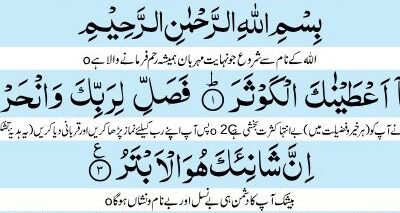
 Quran9 months ago
Quran9 months agoSurah Kausar
